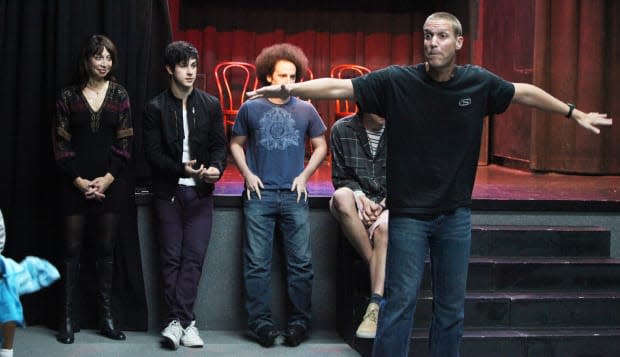Why Are More Businesses Turning to Improv Comedy for Help?

Can some of today's best business lessons be coming from comedy schools?
For a growing number of business professionals, yes it can. From the Saturday Night Live hopeful to the new person in town, improvisational comedy has always attracted a variety of students. These days, improv courses – beginner and advanced – across the country are likely to have at least one or more business professionals in the mix. In some cases, the entire course is in the company meeting room.
Columbia University lecturer Jesse Scinto noted in his Forbes piece, companies including Pepsi and Google are making calls to some of the scene's best instructors and schools. Whether they are seeking to boost their public speaking confidence, build teamwork or a myriad of other reasons, the top schools in unplanned comedy are being sought after.
For those skeptical, consider the base principles of improv that can be mapped onto a business setting. Both need collaboration, listening and thinking on your feet. If you fail to stay in the moment, your desired result is likely to fail. As is the case with business, improv is something a person can learn and improve upon. However, if the individual doesn't have that "it factor" – comedic or business acumen – they are going to have a hard road to success.
"Improv is really helpful with teams at the beginning of projects," notes improv veteran Renee Calarco. As an improv instructor since 1987, and founding member of Washington D.C. troupe Dropping the Cow, Renee has instructed and performed in comedic and corporate settings for the parts of the past four decades. "The one rule of improv is the rule of agreement."
The rule of agreement, or "Yes and-ing" in improv circles, is used as collaborating with scene partners so the scene can further build and develop. Whether in business or on stage, developing a relationship is key to seeing where your interactions will go. To make the rule of agreement work to its full potential, all involved must be in the moment. Or, as famed improv training center the Upright Citizens Brigade (UCB) teaches, "Don't think." As Calarco elaborates, agreeing and being in the moment creates more brainstorming within the team.
As a Production Coordinator for a media and entertainment company, Jenn La Volpe regularly relies on her three levels of improv courses at New York City's The People's Improve Theater (The P.I.T) – as well as her time in an independent improv team she formed with former classmates. "You could learn so much about an individual by engaging in a 2-minute improv scene with them...their approach to conflict, their reaction to the unknown," she explains. Improv allows you to often get a quick introduction to the individuals that make up a team. "You also learn to trust them as your partner, which in a work setting, is a great way to build a team."
It's not clear as to what exactly brought these two career paths together. It could have to do with the rise in improvisers in the media. These days, it is easy to spot two of UCB's co-founders Amy Poehler and Matt Walsh on their respective shows, Parks and Recreation and Veep. Other notable faces include Oscar winning screenwriter/performer Jim Rash (The Descendants, Community), Keegan-Michael Key and Jordan Peele (Key & Peele) and the hilarious Broad City duo of Abbi Jacobson and Ilana Glazer.
This is not happening in the United States alone. As a Digital and Licensing Coordinator for an international music library, Nick Platt knows public speaking is valued just as high in his country, England, as it is in the U.S. He recently attended a course on the subject, noting, "They used improv to show the importance of confidence and roles within groups/audiences and how we can change ourselves to suit different situations. [The course] worked brilliantly."
For those that are unsure to get on stage, improv is an environment that fosters experimentation and risks. If a professional is afraid of failing at a task at their job, improv may ease some of those fears. It's understood that a performer will fail at times because every moment is different. To find your voice you must explore your abilities. By doing this in improv, students not only take their heightened teamwork back to the office. They also take a confidence in themselves that may not have been as present before.
No matter the reason for getting involved, participants must always remember that improv's core goal is to have fun. The benefits are certainly there for students to absorb. However, if their focus is on the end result, they most likely will not benefit to the full extent. As Renee Calarco wants us to remember, "It's important as a break in the day."
